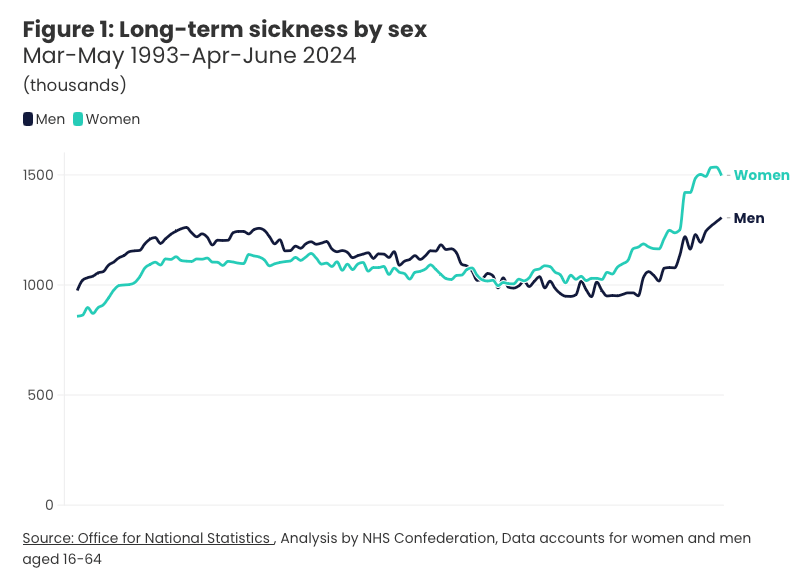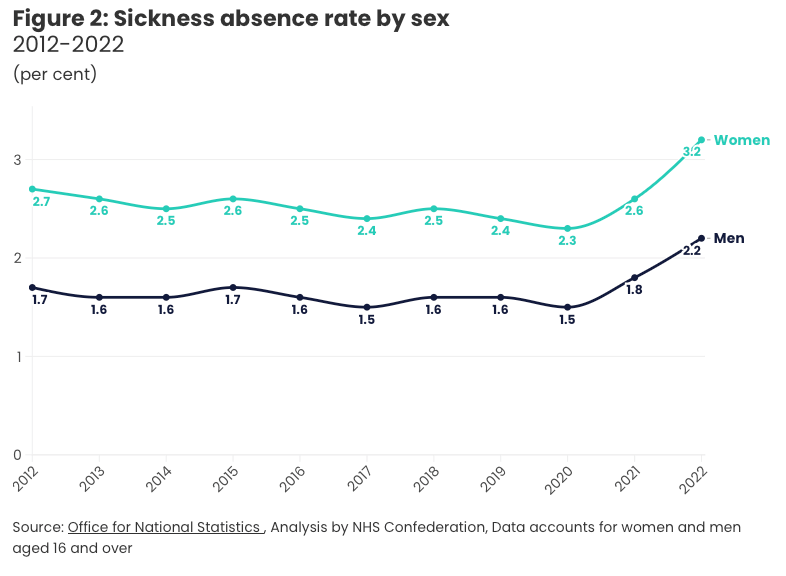A new report from the NHS Confederation, the Create Health Foundation, and London Economics reveals the significant economic benefits to employers from investment in women’s health services in England.

The research finds that for every additional £1 spent per woman on key services like obstetrics and gynaecology, the economy could gain £11.
This return comes from reduced absenteeism, improved productivity, and lower healthcare costs, particularly when addressing conditions like endometriosis, menopause, and menstrual issues.
The report highlights how untreated health conditions in women are currently costing the economy billions. Women face significant barriers in accessing essential health services, leading to a rise in absenteeism and diminished workforce productivity.
Untreated conditions are cited as key contributors to these issues, with absenteeism rates being ‘alarmingly high’ due to symptoms that could be better managed with improved healthcare services.

The economic strain from these untreated conditions not only affects individuals but also has a widespread impact on the national economy.
For example, untreated endometriosis alone is responsible for the equivalent of 11 million lost working hours each year in the UK, illustrating the profound ripple effect of underfunding women’s health services.

The report stresses the urgent need for targeted investment and strategic policy changes to support women’s health.
Better access to healthcare, timely treatments, and more tailored services for women could not only alleviate personal health struggles but also significantly boost economic productivity.
This call for action comes amid broader discussions on gender health disparities, aiming to ensure that women’s health is prioritised in public health policies.
The reports asserts that by investing in women’s healthcare services, the UK stands to benefit both in terms of individual wellbeing and national economic growth.
You can read the full report here.



